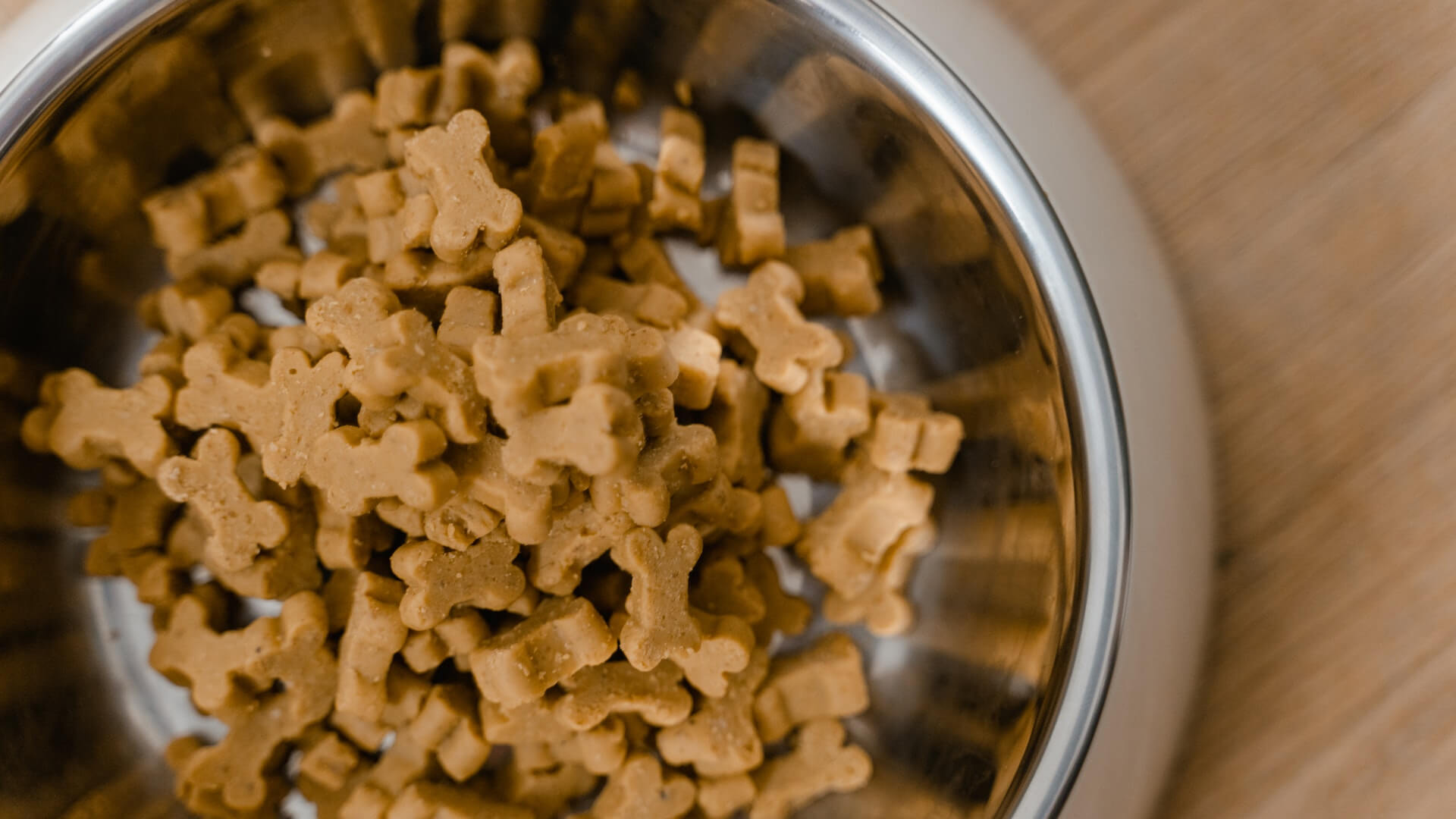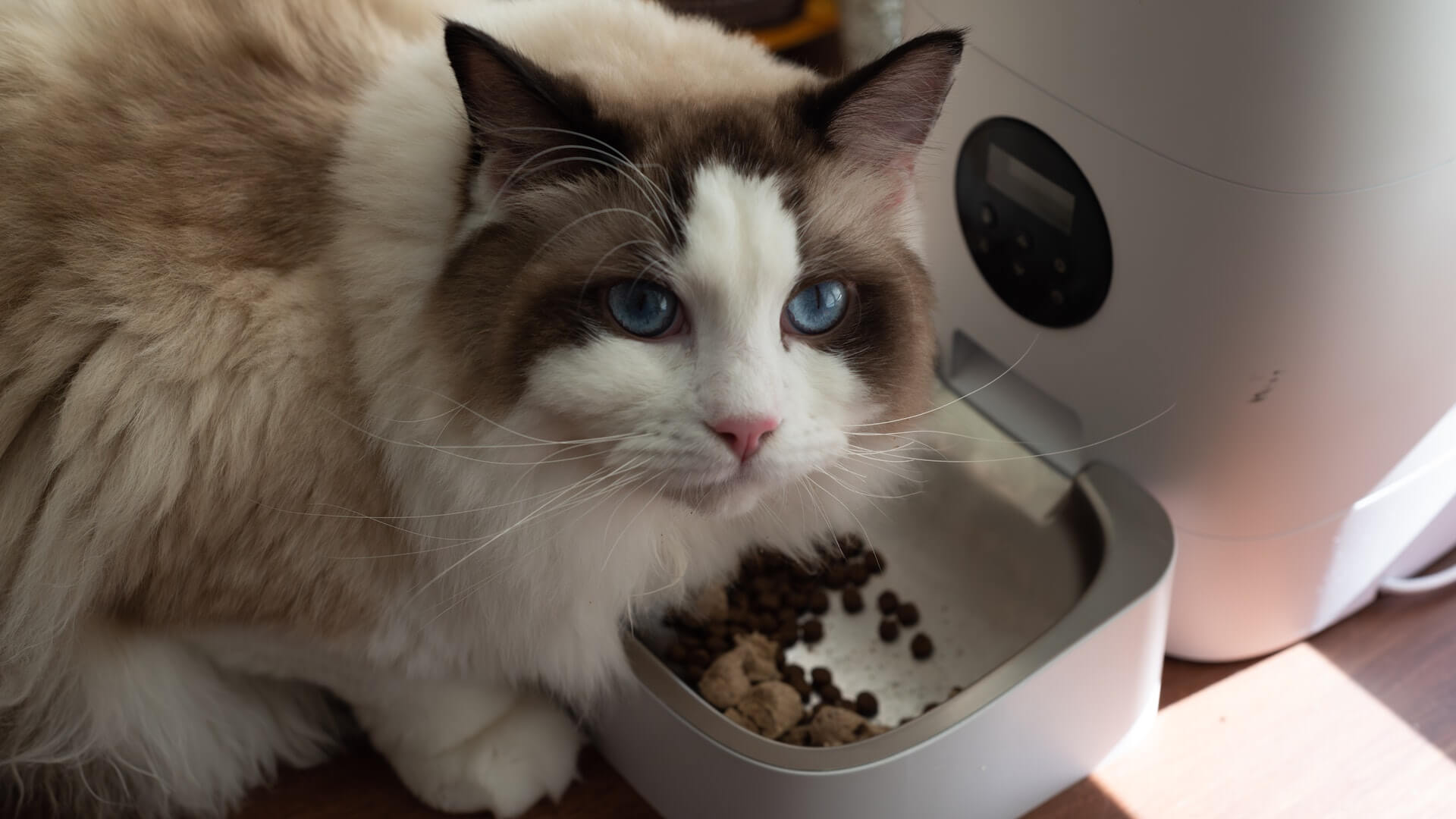Pets play an important role in our lives. They are more than just animals; they are our friends and companions. It’s essential to provide our furry friends with a healthy and balanced diet to help them live a long and happy life. Unfortunately, with so many pet food options on the market, it can be challenging to know what to feed your pet. The truth is, not all pet foods are created equal, and some can even be harmful to your pet’s health. In this blog post, we’ll help you unravel the nutritional puzzle and guide you towards optimal pet nutrition. We’ll discuss everything from pet food labels to choosing the right type of food for your pet’s individual needs. Read on to learn more about how to provide your beloved pet with the best possible nutrition.
Understanding the basics of pet nutrition
At the core of pet nutrition are the essential nutrients that provide the building blocks for growth, development, and overall health. These include proteins, carbohydrates, fats, vitamins, minerals, and water. Each nutrient plays a unique role in supporting different bodily functions.

Proteins, for instance, are vital for muscle development and repair, as well as for the production of enzymes and hormones. They are commonly sourced from animal-based ingredients like meat, poultry, and fish. Carbohydrates, on the other hand, serve as an energy source and can be found in grains, vegetables, and fruits.
Fats are another important component of pet nutrition, providing a concentrated source of energy and essential fatty acids. They aid in nutrient absorption, promote healthy skin and coat, and support various bodily functions. Common sources of fats include animal fats, fish oils, and plant-based oils.
In addition to these macronutrients, pets also require a range of vitamins and minerals to maintain optimal health. These micronutrients play key roles in immune function, bone health, cell growth, and numerous other physiological processes.
Lastly, water is often overlooked but is perhaps the most essential nutrient of all. Adequate hydration is vital for proper digestion, circulation, temperature regulation, and overall well-being. Fresh, clean water should always be readily available to pets.
Understanding the basics of pet nutrition allows us to make informed decisions when it comes to choosing the right food for our pets. It is important to consult with a veterinarian or a qualified pet nutritionist to determine the specific nutritional needs of your pet based on factors such as age, breed, size, and any existing health conditions.
Different nutritional needs for different pets
Just like humans, pets have unique nutritional needs that must be met for optimal health and wellbeing. It’s important to understand that different types of pets, such as dogs, cats, birds, and reptiles, have varying dietary requirements based on their species, age, size, activity level, and overall health condition.
For instance, dogs are omnivores and require a balanced diet that includes a mix of proteins, carbohydrates, fats, vitamins, and minerals. The specific proportions of these nutrients may vary based on factors like breed, age, and activity level. Puppies, for example, require more protein and calories to support their rapid growth and development, while senior dogs may benefit from lower-calorie diets to prevent weight gain and avoid age-related health issues.
On the other hand, cats are obligate carnivores, meaning that they have a higher need for animal-based proteins and fats. They have unique dietary requirements, such as the essential amino acid taurine, which is found primarily in animal tissues. Cats also need a higher amount of dietary fat for energy and to support their skin and coat health. Feeding a cat a diet primarily consisting of plant-based proteins can lead to serious health complications.
For birds, a balanced diet includes a mix of seeds, fruits, vegetables, and fortified pellets to ensure they receive essential vitamins, minerals, and amino acids. Some bird species may have specific dietary requirements, such as the need for high-calcium foods for egg-laying females.
Similarly, reptiles have specialized diets depending on their species. Herbivorous reptiles, like tortoises and iguanas, require a diet consisting mainly of leafy greens and vegetables. Carnivorous reptiles, such as snakes and lizards, need a diet rich in animal proteins, such as rodents or insects.
Decoding pet food labels: What to look for
Decoding pet food labels can be overwhelming for pet owners trying to make informed decisions about their furry friends’ nutrition. With countless brands and varieties available, it’s crucial to understand what to look for when deciphering these labels.

First and foremost, examine the ingredient list. The ingredients are typically listed in descending order by weight, with the first few being the most prominent in the product. Look for high-quality protein sources as the primary ingredient, such as chicken, beef, or salmon. Avoid products that list vague terms like “meat by-products” or “animal digest,” as these can indicate lower quality or questionable sources.
Additionally, keep an eye out for whole grains and vegetables. These are valuable sources of essential nutrients, fiber, and antioxidants that contribute to a balanced diet. Look for specific grains like brown rice or quinoa, as they provide more nutritional value than generic terms like “grain.”
It’s also important to assess the guaranteed analysis section of the label. This section provides information about the minimum percentages of protein, fat, fiber, and maximum percentages of moisture. Ensure that these values align with your pet’s specific needs and any dietary restrictions they may have.
Consider the presence of artificial additives, preservatives, and fillers in the ingredient list. While these ingredients may extend the product’s shelf life, they are not ideal for your pet’s well-being. Opt for products that use natural preservatives like Vitamin E or C, and steer clear of artificial colors, flavors, and unnecessary fillers like corn or wheat.
Lastly, look for labels that indicate the food meets the standards set by reputable organizations, such as the Association of American Feed Control Officials (AAFCO). These organizations provide guidelines for pet food manufacturers, ensuring that the product meets the necessary nutritional requirements.
Essential nutrients for optimal pet health
Protein is one of the most important nutrients for pets. It plays a vital role in building and repairing tissues, promoting healthy skin and coat, and supporting a strong immune system. High-quality sources of protein such as lean meats, fish, and poultry should be included in their diet.
Carbohydrates are another essential nutrient for pets. They provide the necessary energy for daily activities and help maintain healthy blood sugar levels. Whole grains, vegetables, and fruits are excellent sources of carbohydrates that can be incorporated into their meals.
Fats are often misunderstood but are actually beneficial for pets. They serve as a concentrated source of energy, aid in the absorption of fat-soluble vitamins, and help maintain healthy skin and a shiny coat. Including healthy fats from sources like fish oil, flaxseed, and chicken fat can greatly benefit your pet’s overall health.
Vitamins and minerals are also essential for pets. These micronutrients play a crucial role in supporting various bodily functions and promoting optimal health. A balanced diet that includes a variety of fruits, vegetables, and whole foods can provide the necessary vitamins and minerals for your pet.
Lastly, water is often overlooked but is a vital nutrient for pets. Just like humans, pets need access to clean and fresh water at all times. Water helps regulate body temperature, aids in digestion, and supports overall hydration.
While understanding the essential nutrients for optimal pet health is important, it is also crucial to consult with a veterinarian to determine the specific dietary needs of your pet. Each pet is unique, and their nutritional requirements may vary based on factors such as age, breed, size, and any underlying health conditions.
The impact of diet on a pet’s overall well-being
A well-balanced diet provides the essential nutrients, vitamins, and minerals that pets need to support their immune system, maintain a healthy weight, and promote optimal organ function. It can contribute to healthy skin and coat, strong bones and teeth, and a shiny, lustrous coat.

Moreover, a proper diet can also help prevent and manage common health issues in pets. For example, certain dietary adjustments can support pets with allergies, sensitive stomachs, or joint problems. It is important to consult with a veterinarian to ensure that your pet’s specific dietary needs are being met.
Furthermore, the quality of the pet’s diet matters just as much as the composition. Opting for high-quality pet food that is free from artificial additives, fillers, and by-products can make a significant difference in their overall well-being. Reading labels and understanding the ingredients can help pet owners make informed choices.
In addition to the physical benefits, a nutritious diet can also have a positive impact on a pet’s mental and emotional well-being. When pets are properly nourished, they are more likely to exhibit balanced behavior, have a higher level of energy, and experience improved cognitive function.
Special dietary considerations for pets with specific health conditions
When it comes to pet nutrition, there are certain considerations that need to be taken into account for pets with specific health conditions. Just like humans, pets can also have unique dietary needs based on their individual health conditions.
For example, if your pet has allergies or sensitivities, it may be necessary to avoid certain ingredients that can trigger adverse reactions. In such cases, a hypoallergenic diet that excludes common allergens like wheat, soy, and dairy could be beneficial.
Pets with kidney disease may require a diet that is low in phosphorus and protein. These specially formulated diets can help reduce the workload on the kidneys and manage the progression of the disease.
Similarly, pets with diabetes may benefit from a diet that is low in carbohydrates and high in fiber to help regulate blood sugar levels. This can be achieved through specially designed veterinary prescription diets or by working closely with a veterinarian to create a customized meal plan.
Pets with gastrointestinal disorders, such as inflammatory bowel disease or pancreatitis, may require a diet that is easily digestible and low in fat. These diets are formulated to reduce inflammation and provide essential nutrients while minimizing stress on the digestive system.
It is crucial to consult with a veterinarian to identify any specific health conditions or dietary needs your pet may have. They can provide professional guidance and recommend appropriate diets or supplements that can help manage or improve your pet’s health.
The dangers of improper nutrition for pets
The dangers of improper nutrition for pets cannot be overlooked. Feeding our pets an unbalanced or inadequate diet can have serious consequences on their overall health. One of the most common issues is obesity, which can lead to a range of health problems such as diabetes, joint issues, and heart disease.

On the other hand, undernourishment or nutrient deficiencies can also pose significant risks. Insufficient intake of key nutrients like proteins, vitamins, and minerals can weaken their immune system, impair their growth and development, and make them more susceptible to infections and diseases.
Moreover, feeding pets with inappropriate human foods can be extremely hazardous. Some foods that are perfectly safe for humans can be toxic to animals, such as chocolate, grapes, onions, and certain artificial sweeteners. These can cause severe digestive issues, organ failure, and even be fatal in some cases.
It’s crucial to understand that every pet has unique dietary needs based on factors like age, breed, size, and activity level. Consulting with a veterinarian or a professional veterinary nutritionist is highly recommended to ensure that our pets receive the proper nutrition they require. They can provide tailored diet recommendations and help us navigate the vast array of pet food options available in the market.
Conclusion
As pet owners, we understand the importance of providing our pets with the best possible nutrition to support their overall health and well-being. By following the tips and recommendations outlined in this blog post, you can ensure that you are making informed choices when it comes to your pet’s diet. Remember, every pet is unique, so it’s important to consult with your veterinarian to tailor their diet to their specific needs. Here’s to happy, healthy pets with a well-balanced diet!




One Comment